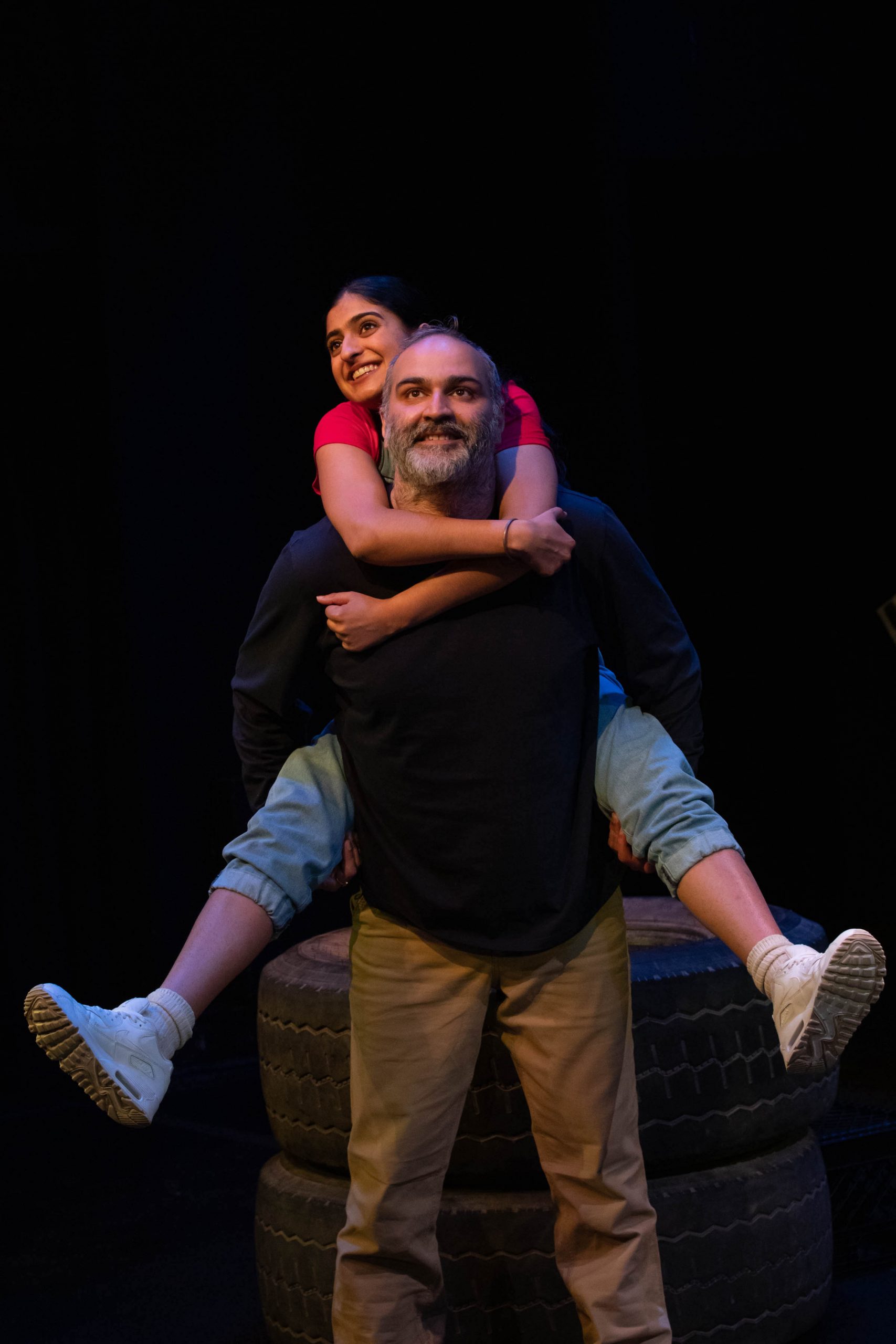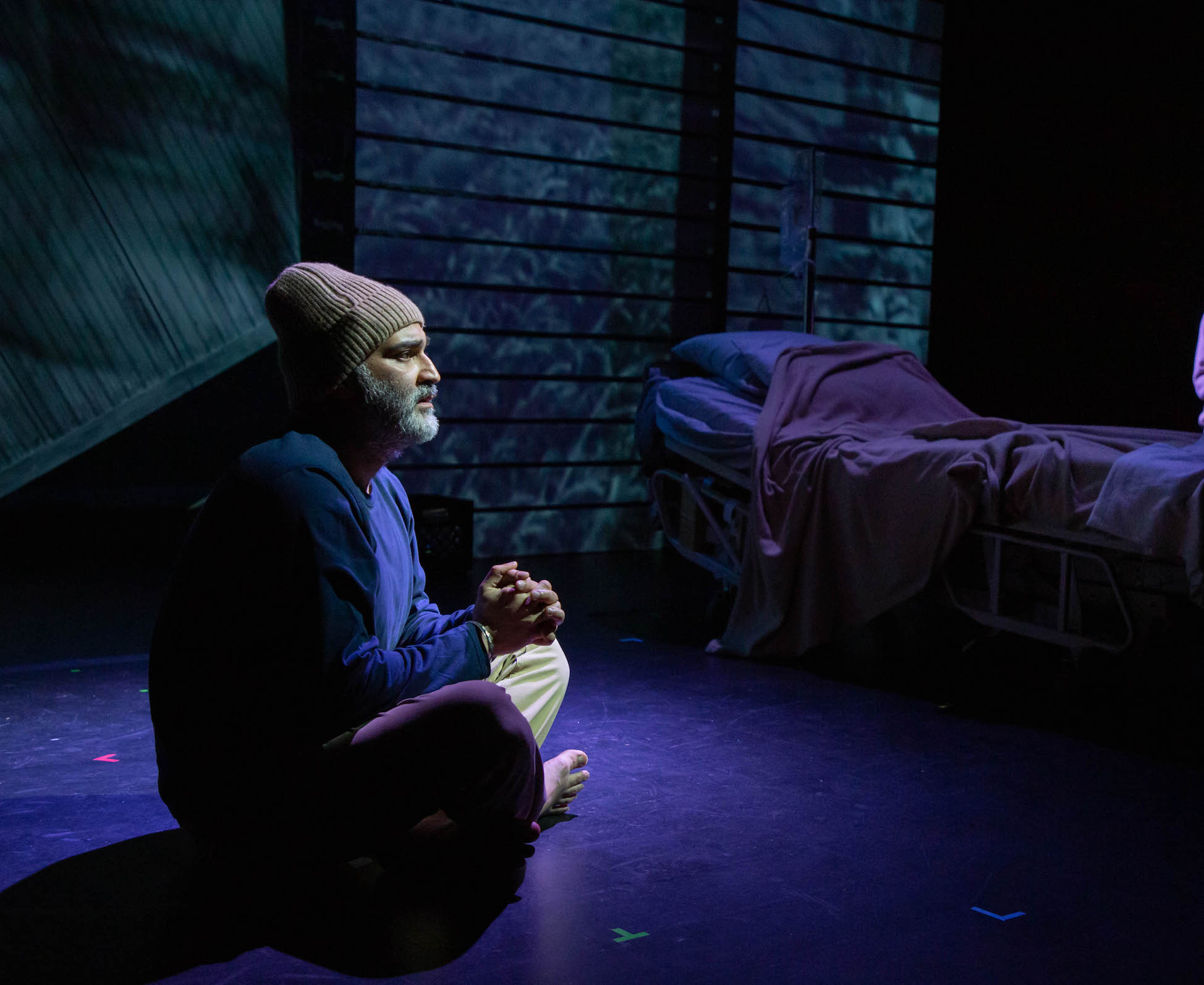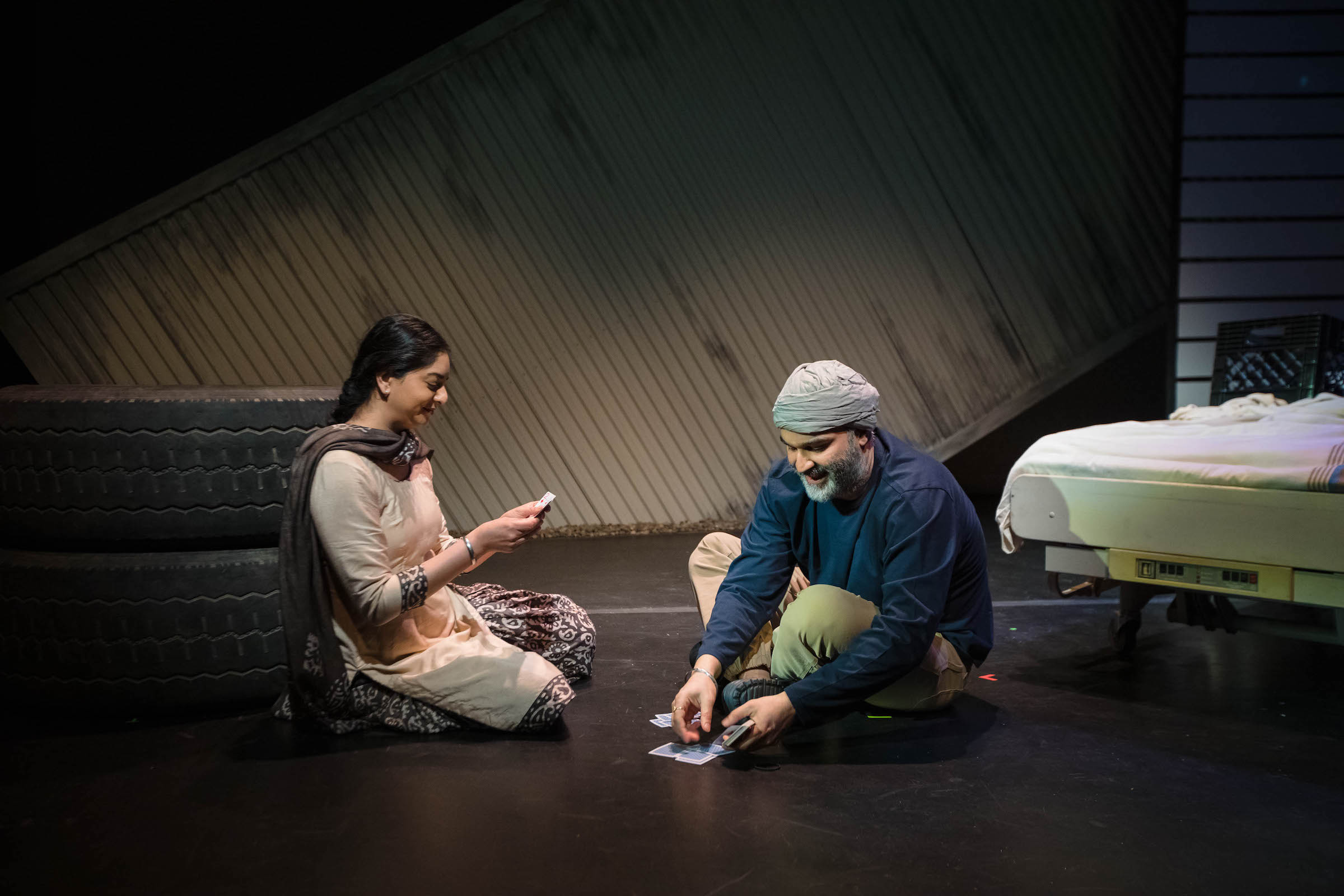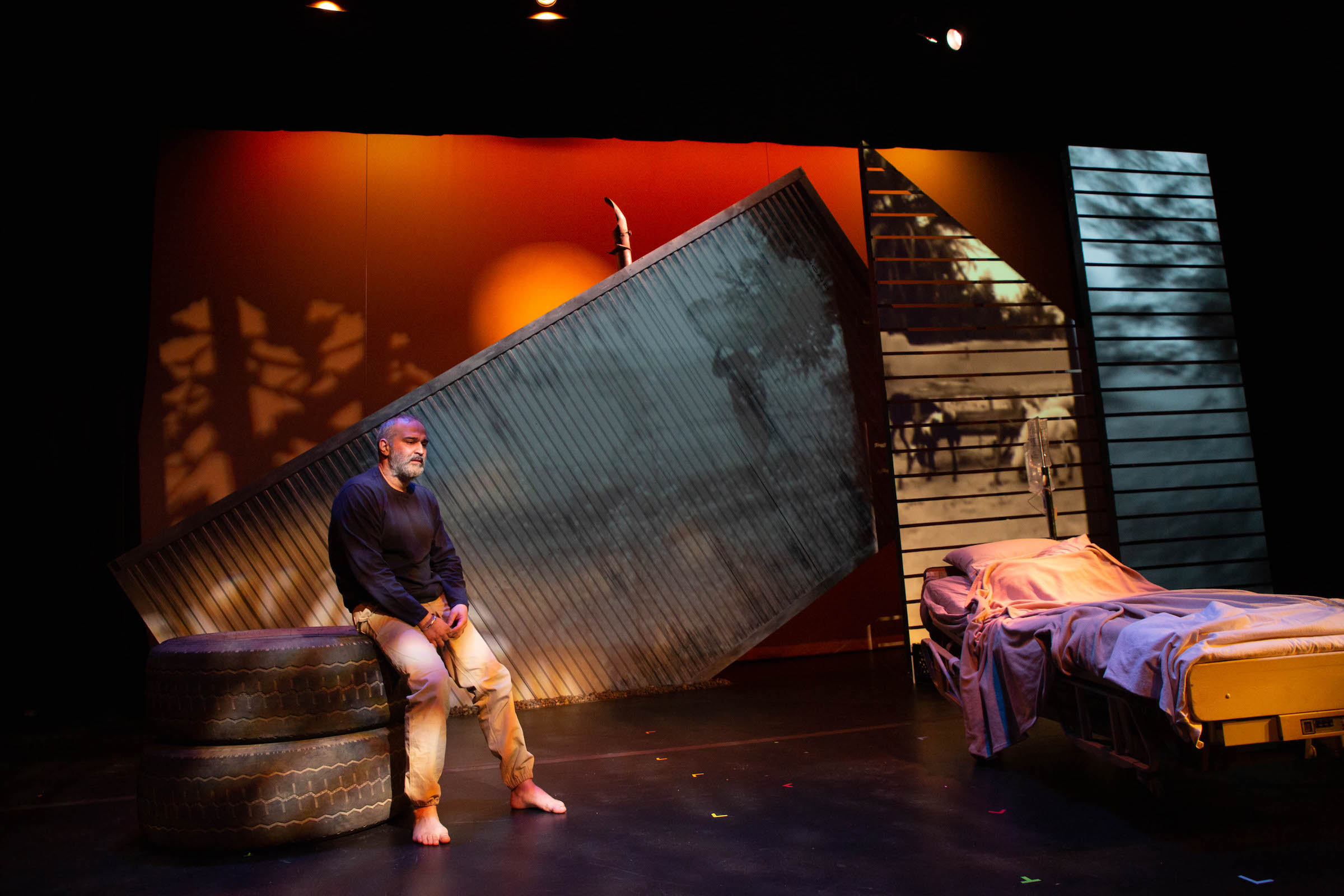
Credit: Sarah Race Photography
The Cultch Historic Theatre until May 15, 2022
Tickets from $26 at tickets.thecultch.com or 604-251-1363
Posted May 13, 2022
If your Punjabi is rusty or, like mine, non-existent, Himmat – albeit charming – can be a challenge. A lot can be inferred from context, body language and tone but a decision not to use surtitles leaves something like a quarter of the dialogue of one main character inaccessible to most of us. On the other hand, it parallels the experience of some immigrants arriving in Canada with little, if any, English. The shoe, so to speak, is on the other foot. It’s a bold decision.
You can read a synopsis here and it’s a good idea to read it before seeing the show because the story is non-linear and moves around from several locations, most particularly Surrey Memorial Hospital: https://thecultch.com/program/himmat/

Credit: Sarah Race Photography
Written by Gavan Cheema and directed by Paneet Singh, Himmat is a family story spanning the worlds of Banth (Munish Sharma), born in India, and his 24-year-old daughter Ajit (Gavan Cheema), born in Canada. While in interviews and production notes, the playwright downplays the elements of Banth’s alcoholism and drug addiction and stresses family relations and redemption, it’s hard to set those issues aside.
However, Banth’s family does forgive him his lapses, and strengthened family relations are where this world premiere of Cheema’s play, with dramaturgy by Tim Carlson, goes; the characters are remarkably generous. Banth himself has a great sense of humour and the playwright uses that quality to keep the story light.
The synopsis has twenty-nine points but Himmat moves very quickly and despite all the flashbacks and several locations plus the untranslated Punjabi, it’s fairly easy to follow.
At the top of the show, Banth, in a hospital bed, awaits surgery for cancer while Ajit tries to pray for his recovery; she has, however, forgotten how. Later, out of surgery, Banth’s wife Bachani (Veenu Sandhu) arrives by his bedside and Banth begins to relate morphine-induced memories of leaving India, working as a labourer to provide for his wife and family while easing his physical and spiritual pain with alcohol and pills.

Credit: Sarah Race Photography
A flashback to the early years, newly married, in their tiny Lower Mainland basement suite is so sweet – the two of them dancing and playing cards. Sandhu and Sharma make Banth and Bachani such an engaging couple: Banth, ruggedly handsome and quick-witted; and Bachani, composed, girlish and lovely. It is shocking, later, to see Banth drunk.
Cheema, as Ajit, is animated and a believable bridge between the two cultures.
Kimira Reddy’s set is simple: a couple of big tires, some milk crates and a hospital bed against a lattice-work backdrop. A note about the hospital bed: rather than leaving it in one position, it gets shifted around into various positions by the performers – a smart move that provides a dynamic into what can be a deadly static hospital scene.

Set design: Kimira Reddy. Lighting design: Parjad Sharifi. Video projections: David Mesiha
Credit: Sarah Race Photography
David Mesiha provides video projections that assist in locating the action, especially when the narrative moves to India.
Himmat, a word that apparently means courageous or brave in Punjabi, is charming, heartwarming and a window into a culture that we don’t hear a lot about. What it expands upon is the courage it takes to leave one’s homeland and put down roots elsewhere. In Himmat, family – and especially forgiveness within the family – is what makes transition into Canada’s sometimes unwelcoming culture possible for Banth.

